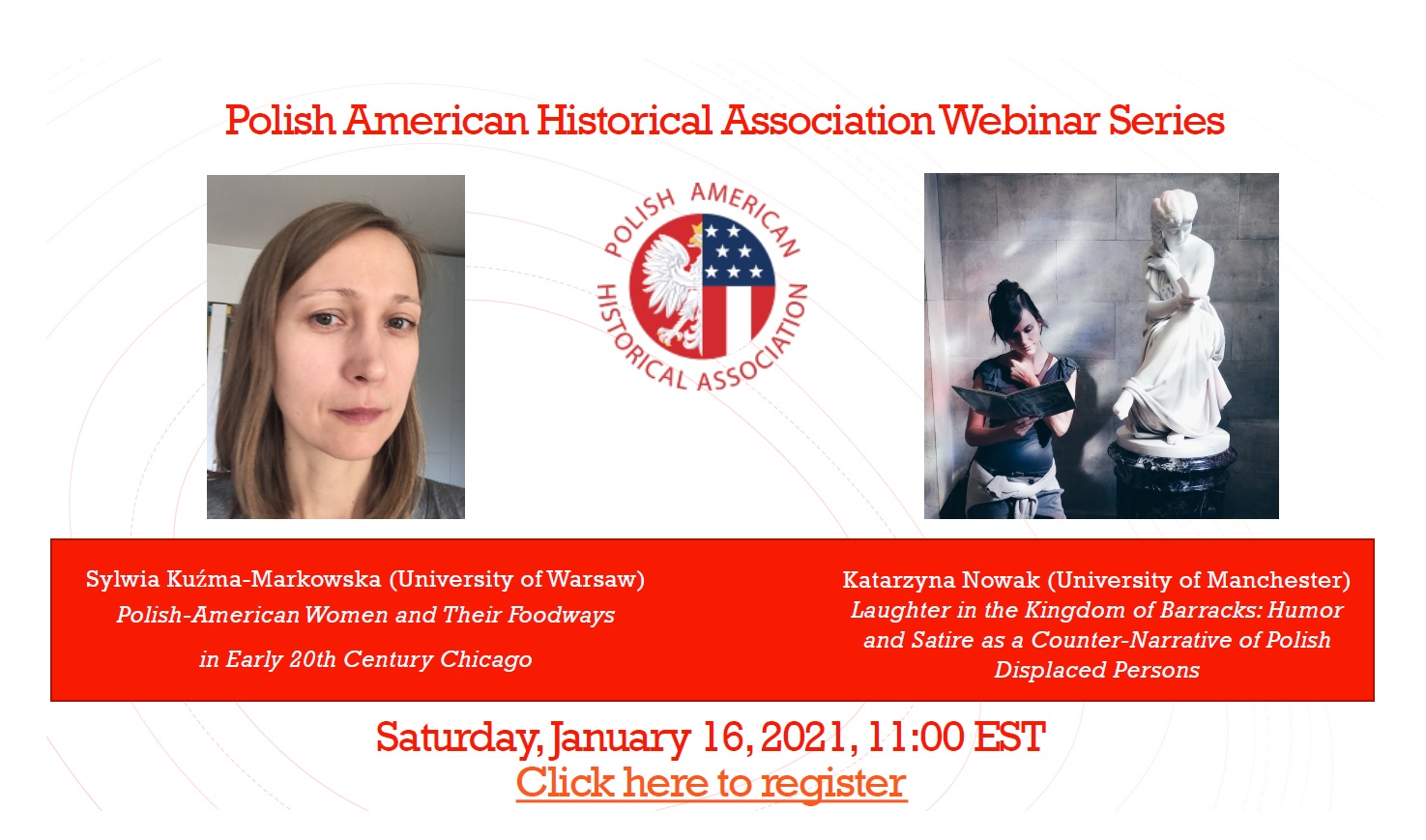The Polish American Historical Association presents its first webinar of 2021. The webinar features two talks, by Dr. Sylwia Kuźma-Markowska and Dr. Katarzyna Nowak, that each highlights an aspect of the experience of women in Polish diaspora. The virtual event will take place on Saturday, January 16, 11:00 AM EST/ 17:00 Warsaw. The event is free and open to all! All attendees must register: https://umich.zoom.us/meeting/register/tJYsfuiqrDojGNOv-0ty3vKChEGjXBE56FFo
Dr. Sylwia Kuźma-Markowska (American Studies Center, University of Warsaw)
Polish American Women and Their Foodways in Early 20th Century Chicago
The paper discusses Chicago Polish American women and their foodways during the period of the Great Migration (turn of the 20th century) and in interwar years. Relying on the insights from oral histories, (auto)biographies and letters, I will analyze how cooking, feeding and eating practices of Polish families changed as a result of their migration to the United States. I will also examine the Americanization of Polish foodways, mainly due to the efforts of such institutions as the Northwestern University Settlement that offered cooking classes to Polonia girls and women in the Stanislawowo-Trojcowo neighborhood. The third main question that this paper poses regards the modernization of Polish American foodways that will be studied with an analysis of recipes presented in magazines for Polonia women such as Głos Polek (published by the Polish Women’s Alliance of America) or in women’s sections of major Polish American newspapers such as Zgoda.
Dr. Katarzyna Nowak (Research Associate, University of Manchester)
Laughter in the Kingdom of Barracks: Humor and Satire as a Counter-Narrative of Polish Displaced Persons
When the Second World War ended, Polish Displaced Persons (DPs) liberated in the territory of the Third Reich – mainly forced laborers and concentration camp inmates – were directed to refugee camps set up by the Allied military and later on managed by UNRRA (United Nations Relief and Rehabilitation Organization). In the face of communist takeover of Poland, many of them remained there for several years and sought resettlement abroad. Through extensive propaganda supported by a legion of professional photographers and journalists, UNRRA coined a narrative of successful humanitarian mission that transformed victims of war into rehabilitated citizens. Humor, at times sliding into satire, was one of the bottom-up strategies which enabled disempowered DPs to engage in the critique of this vision and provide an alternative reading of the post-war reality.
This paper explores the role of humor in the Polish DP community, discussing its subversive and normalizing potential. Drawing on material from several archives, it maps out various expressions of humor in drawings, stories, and jokes. It demonstrates how they expose the bitter reality of life in refugee camps, as well as anxieties about the perceived ‘topsy-turvy world’ of the postwar values and social hierarchies. Conceptualizing DPs’ humor as a weapon of the weak, to use James Scott’s term, the paper shows how it simultaneously functioned as a coping strategy, or a survival laughter, and as a struggle to have their voices heard. The laughter in the ‘kingdom of barracks’, even if often bitter, provided a tool of resistance against practices of ‘care and control’ and seemed to have the power of distancing DPs from the oppression of the refugee regime.
